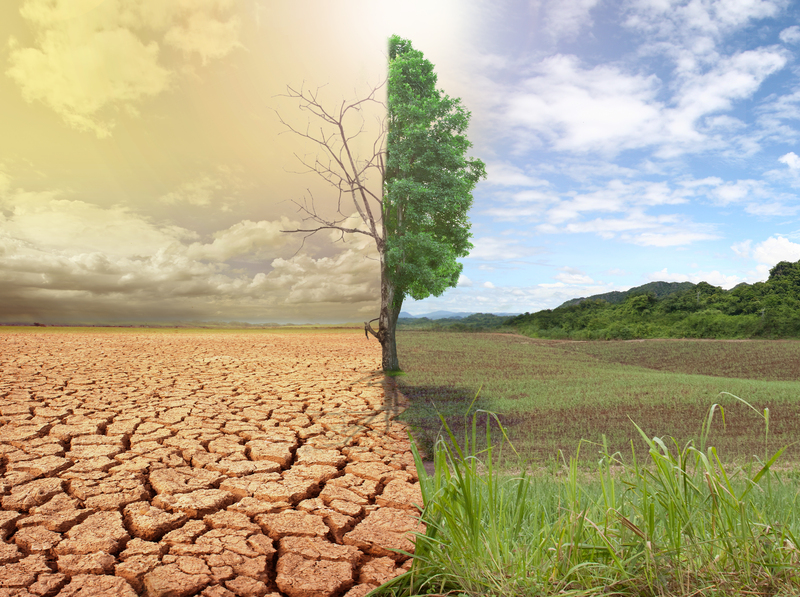Posted on 18/06/2025
Effects of Waste Mismanagement on Nature
Proper waste management is a crucial aspect of maintaining ecological balance and promoting sustainability. Unfortunately, waste mismanagement remains a widespread issue globally, with severe repercussions for our environment. The mishandling of waste, whether it be industrial, household, or agricultural, has profoundly adverse effects on nature. This article aims to explore the various dimensions and repercussions of waste mismanagement.
Impact on Soil Quality
Soil is an essential natural resource that supports plant growth, regulates water flow, and acts as a habitat for countless organisms. Poor waste management practices, such as the indiscriminate disposal of industrial effluents, untreated sewage, and plastic waste, can contaminate the soil. Hazardous chemicals from waste leach into the ground, altering its natural composition. This contamination can disrupt the nutrient balance of the soil, reduce its fertility, and impact agricultural productivity.
Additionally, the presence of non-biodegradable waste, like plastics, can lead to soil degradation. When plastics break down, they form microplastics that hinder the natural processes within the soil. These microplastics can also be ingested by soil organisms, leading to bioaccumulation and adverse effects up the food chain.

Water Pollution
The improper disposal of waste has a direct impact on water bodies and the overall water quality. When waste is not adequately treated or disposed of, it often ends up in rivers, lakes, and oceans. The introduction of pollutants, such as chemicals, heavy metals, and non-biodegradable materials, into these water bodies poses a significant threat to aquatic life.
For instance, the disposal of plastics into oceans contributes to the formation of large garbage patches, like the Great Pacific Garbage Patch. These patches not only harm marine life through ingestion and entanglement but also affect the entire marine ecosystem. Chemicals from waste can lead to the eutrophication of water bodies, resulting in algal blooms that deplete oxygen levels and create "dead zones" where aquatic life cannot survive.
Air Pollution
Another significant consequence of waste mismanagement is the contribution to air pollution. Open burning of waste is a prevalent practice in many regions, especially where waste management infrastructure is lacking. This process releases a plethora of harmful pollutants into the atmosphere, including greenhouse gases like carbon dioxide and methane, particulate matter, and toxins such as dioxins and furans.
The release of these pollutants has far-reaching effects on both health and the environment. Airborne toxins can cause respiratory issues, cardiovascular diseases, and other health problems in humans. Moreover, the increase in greenhouse gases contributes to global warming and climate change, further impacting natural ecosystems.
Loss of Biodiversity
Biodiversity is critical for the stability and resilience of ecosystems. Waste mismanagement poses a severe threat to biodiversity in several ways. Contaminants from waste can destroy natural habitats, making them inhospitable for many species of plants and animals. Additionally, polluted water and soil can directly poison organisms or disrupt their reproductive processes.
For example, the ingestion of plastics by marine animals can lead to starvation, injury, and death. Pollutants like heavy metals can accumulate in the tissues of animals, affecting their health and reproductive capabilities. The overall reduction in biodiversity weakens ecosystems, making them less capable of withstanding environmental stresses and less productive in terms of the services they provide, such as pollination, water purification, and carbon sequestration.

Health Hazards
The mismanagement of waste not only affects the environment but also poses significant health risks to humans. Exposure to contaminated soil, water, and air can lead to a variety of health problems. For instance, communities living near poorly managed landfill sites are at a higher risk of respiratory issues, skin infections, and other illnesses due to their proximity to pollutants.
Moreover, the leaching of hazardous chemicals from waste into groundwater can contaminate drinking water sources. Consuming contaminated water can lead to severe health problems, including gastrointestinal disorders, neurological damage, and even cancer. The presence of toxic substances in the food chain, through soil and water contamination, further exacerbates the health risks for humans and wildlife alike.
Sustainable Solutions to Waste Management
Addressing the issues of waste mismanagement requires a multi-faceted approach that includes both technological and behavioral changes. Some sustainable solutions to improve waste management include:
- Waste Reduction: Reducing the overall amount of waste generated is the first step towards better waste management. This can be achieved through practices like minimizing packaging, using reusable products, and implementing efficient production processes.
- Recycling and Composting: Recycling helps to divert waste from landfills and reduces the need for raw materials. Composting organic waste transforms it into valuable fertilizer, enhancing soil health and reducing the burden on waste disposal systems.
- Waste-to-Energy Technologies: Converting waste to energy through incineration or anaerobic digestion can reduce the volume of waste and produce energy, thus providing a dual benefit.
- Proper Waste Segregation: Segregating waste at the source helps in efficient recycling and disposal. Communities should be educated about the importance of separating biodegradable and non-biodegradable waste.
- Stricter Regulations and Policies: Implementing and enforcing stricter regulations on waste disposal and management can ensure that waste is handled in an environmentally friendly manner. This includes penalties for illegal dumping and incentives for recycling and waste reduction initiatives.
In conclusion, waste mismanagement poses a significant threat to nature, affecting soil quality, water resources, air quality, biodiversity, and human health. By adopting comprehensive and sustainable waste management practices, we can mitigate these adverse effects and promote a healthier and more sustainable environment.
Latest Posts
Tips for Proper Disposal of Regular Waste
Garbage Cleanup Bags - Efficient Skip Substitute

































 Get a Quote
Get a Quote